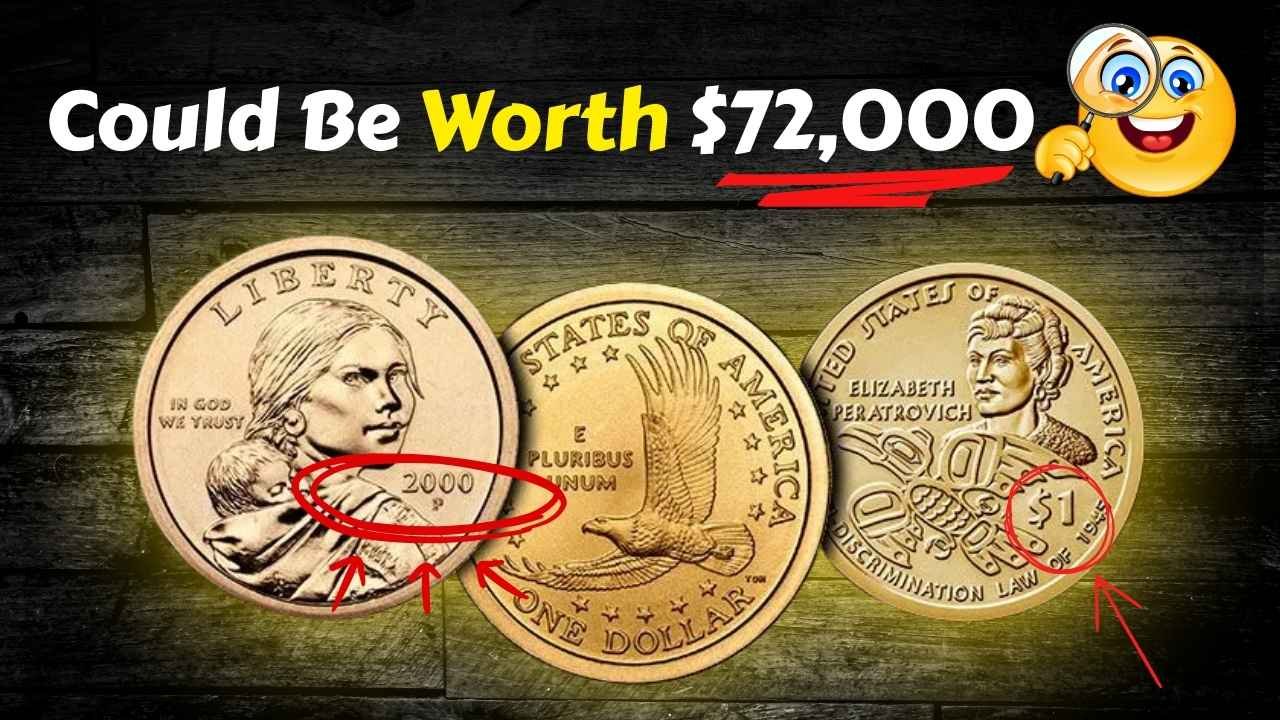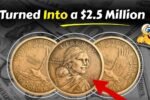Join on WhatsApp
Get the latest updates directly on WhatsApp – motivation, news & more!
Last month, a small-town cashier in Arkansas made a jaw-dropping discovery while sorting coins. Nestled among ordinary dollar coins was a 2000-P Sacagawea Dollar that didn’t look quite right. Instead of Sacagawea on the front, it featured George Washington yes, the very same face from a quarter. This rare mistake, known as the “mule error,” can fetch up to $72,000 if verified. Once authenticated by a professional grading service, the coin was valued at around $70,000, sending waves of excitement through the coin-collecting community. Now, collectors everywhere are inspecting their change for a potential treasure.
What Is the Mule Error Coin?
A mule error occurs when two coin designs that aren’t supposed to meet get accidentally combined. In this case, the Philadelphia Mint mistakenly stamped the obverse of a Washington Quarter onto a Sacagawea Dollar planchet, while the reverse retained the traditional soaring eagle. Only about 19 of these coins are known to exist, making them extremely rare. At auctions, such coins have sold anywhere from $50,000 to $150,000, thanks to their scarcity and historical importance.
Why Collectors Are Excited
The discovery has reignited a passion for coin hunting. Social media and forums are buzzing with tips on spotting errors, and many collectors are inspired to dig through rolls of dollar coins. Finding a $72,000 coin in everyday change isn’t just a story it’s a thrill and a reminder that history can be hiding in your pocket. Experts say that coin collecting isn’t merely about money; it’s about uncovering a piece of the past. The 2000-P mule error has quickly become a modern legend in the numismatic world.
How to Identify a Mule Error
Wondering if you might have one of these coins? Keep an eye out for these features:
- Front (Obverse): George Washington, not Sacagawea.
- Back (Reverse): The traditional Sacagawea soaring eagle.
- Date & Mint Mark: Look for “2000” and a “P.”
- Edge: Smooth, like a regular Sacagawea Dollar not the reeded edge of a quarter.
If you think you’ve found a mule error, avoid cleaning it. Take it to a professional grading service like PCGS or NGC to confirm authenticity.
| Feature | Description |
|---|---|
| Front (Obverse) | George Washington (Quarter design) |
| Back (Reverse) | Sacagawea Dollar soaring eagle |
| Date & Mint Mark | 2000 with “P” |
| Potential Value | Up to $72,000 for high-grade coins |
Tips for Coin Hunters
Coin collecting can be fun and rewarding for beginners and seasoned collectors alike. Start by checking dollar coins from banks or change from stores. Other valuable error coins, like the 2000-P Cheerios Sacagawea Dollar or the Wounded Eagle variety, can also fetch thousands. Joining a coin club or following online communities can provide tips and knowledge. And always get a professional appraisal before selling to ensure you receive a fair price.
| Coin Type | Potential Value |
|---|---|
| 2000-P Mule Error | Up to $72,000 |
| 2000-P Cheerios Dollar | Up to $25,000 |
| Wounded Eagle Variety | Up to $10,000 |
Keep Your Eyes Open
This $72,000 discovery proves that rare coins are still circulating. Whether in a drawer, coin jar, or your wallet, a 2000-P Sacagawea Dollar could be worth far more than face value. The mule error coin is a fascinating reminder that even small mistakes can lead to big rewards. Next time you handle a golden dollar, take a closer look you might just be holding a piece of history.


